Written agreements are vital towards establishing a mutually beneficial relationship between two parties, laying out the services, terms, and conditions they consent to. A Service Agreement works no differently, providing a framework for consultants of all fields of expertise to provide their services to clients. Whether you offer such services or are in need of them, it is imperative that you understand the key components of a successful Service Agreement and employ an attorney with expertise in drafting them.
The main purpose of any Agreement is to specify what one party will do for the other (and perhaps also visa-versa). At a minimum, the Agreement should state what service is to be provided, what fees or charges are being agreed to and any additional important terms and conditions, such as time to completion or others agreed upon points. Often, an Addendum is attached to a Main Agreement with specifics. This is usually referred to by reference as the Statement of Work.
In some cases, the party employing the consultant may need to provide support services to facilitate the consultation work, such as the use of the company’s equipment. The Agreement can have a section enumerating these duties based on the understanding of the parties.
Fees and expenses should also be clearly stated along with a method for payment, such as “X percentage up-front”, “due upon completion”, “due within X days of invoice receipt” etc. Likewise, a good Agreement will specify when the job will be invoiced.
The Service Agreement should state what date it comes into effect and for how long it will remain in force. The Agreement should spell out whether it can be terminated on a specific date or when the work has been completed to the satisfaction of both parties.
These Agreements often require dealing with very sensitive material. The Service Agreement should devote a section to clearly outlining the parameters and restrictions with which this information can be utilized. It might directly state that one party consents to disclose said information to the other party and that if anything confidential is to be disclosed to a third party, it can be done only through the written and signed consent of both parties. If a breach or wrongful use of this information is to occur, then the provision should spell out the consequences, namely an immediate termination of the Agreement and the right of the wronged party to pursue legal action and recover the associated costs.
It is also a good idea to include a warranty that describes the remedy for any guarantees you are providing or issues that may arise. For example, by way of refund or correction at no additional cost to the receiving party.
Lastly, the Service Agreement should contain a section that covers a range of other matters that are crucial to the execution of the work. This includes making clear that the consultant is an independent contractor rather than an employee (which would have distinct tax implications), giving leeway to any delays or failures in performance caused by externalities beyond either party’s control, and establishing how the two parties will communicate with one another in relation to the Agreement (via email, U.S. mail, etc.).
Keep in mind, too, that any given Service Agreement may require additional articles or sections that are unique to the engagement. It is important that legal expertise be sought when preparing your Agreements, to be sure the language is carefully drafted and the necessary contractual elements are present.
***
































































